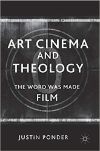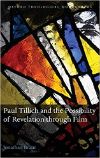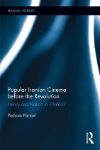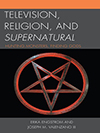Faith and Spirituality in Masters of World Cinema
- Author: Kenneth R. Morefield
- Year: 2008
- Publisher: Cambridge Scholars Publishing
Buy this book at Amazon and on Kindle
Faith and Spirituality in Masters of World Cinema is a fascinating introduction to spiritual aspects in the works of some of the greatest filmmakers in the world, like Bergman, Dreyer and Tarkovsky, Avant Garde director Pedro Costa and Hollywood's golden boy Guillermo del Toro. It covers directors from around the world and shows diverse manifestations of spirituality in film; everything from how camera movements can imply spirituality to specific religions, like Islam and Christianity. Faith and Spirituality in Masters of World Cinema is a welcome addition to a growing library on religion and film. âThorkell Ottarson The essayists in Faith and Spirituality in Masters of World Cinema offer provocative studies of the often uneasy relationship that exists between religion and film, faith and reason. They never shy away from their critical burden, challenging readers to delve deeply and think more forcefully about the ethics and values that shape our cultureâand our lives. Faith and Spirituality in Masters of World Cinema dares us to reconsider what it means to be whole and holy across the great history of film. It is a spiritual and critical journey of the highest magnitude. Dr. Kenneth Womack, Chair of the English Department, Penn State University at Altoona Not many works of art would withstand the rigorous examination of the kind in this collection, but Kenneth Morefield and his contributors have chosen well. They've chosen filmmakers whose work not only withstands but seems to grow under the bright light of careful consideration. I'm not familiar with all of them, which makes the collection a useful map to the currents that run below their surfaces, but I also found new ways to appreciate Pedro Costa and the Dardenne brothers whose films I've admired, even loved, but never thought about in quite this way. Reading the essays together, I discovered that this group of filmmakers, while distinct in their beliefs, approaches, and aesthetics, are all striving to reawaken our senses, and by capturing something concrete they're looking for something invisible. That they've found so many ways to do this from Del Toro's physically-rooted fantasy to Costa's material worldproves that cinema may not be dead just yet, even with the twentieth century in the rear view mirror. Rob Davis, chief film critic of Paste Magazine; co-founder of Daily Plastic








